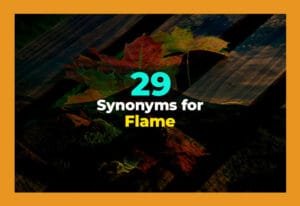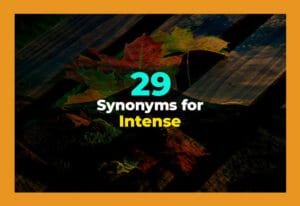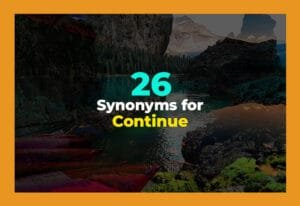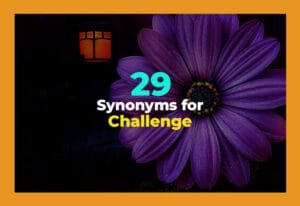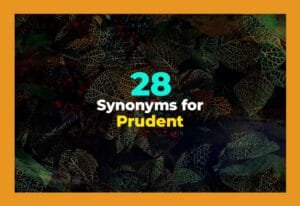The word "consume" comes up in many situations, whether talking about eating, using resources, or being overwhelmed by something. Words like devour, exhaust, and absorb can often replace it, depending on the context. Each synonym carries its own nuance, helping your writing or conversation feel more precise and engaging. In this article, we'll explore 28 alternatives for consume with clear explanations and examples.
28 Different Ways to Say CONSUME: Another Word for CONSUME
Devour
Devour is a dynamic synonym for consume, often used when describing eating with great enthusiasm or intensity. It suggests more than just eating; it conveys eagerness and sometimes urgency. This word works well in storytelling or descriptive writing where you want to show someone enjoying food passionately. Beyond food, devour can also describe absorbing books, movies, or knowledge with equal intensity. Using devour adds energy and vivid imagery to your sentence.
- He devoured the entire pizza in under ten minutes.
- She devoured the novel in one afternoon.
- The audience devoured every word of the speaker's story.
Ingest
Ingest refers to the act of taking something into the body, usually food, drink, or medicine. It is more formal and scientific than consume, making it suitable for health, nutrition, or medical contexts. Ingest emphasizes the process rather than enjoyment or emotional impact. You can use it to describe the careful intake of substances or explain biological processes in writing that needs clarity and precision.
- The patient ingested the prescribed medication with water.
- Animals often ingest small stones to aid digestion.
- He accidentally ingested some sand while swimming at the beach.
Gobble
Gobble conveys the idea of consuming quickly and often noisily. It works in situations where speed, excitement, or a lack of patience is highlighted. Unlike ingest, gobble is more playful and informal, perfect for fun narratives or food-related content. It can also be applied metaphorically to describe consuming information or resources eagerly.
- The kids gobbled up the cookies before anyone noticed.
- He gobbled his breakfast while checking his phone.
- Tourists gobbled souvenirs from the market.
Swallow
Swallow emphasizes the act of taking something into the mouth and down the throat. It can be literal, like food or drink, or metaphorical, like swallowing emotions or ideas. Swallow works best when you want to stress the process of internalizing something. It carries subtle implications of acceptance or endurance, giving a nuanced alternative to consume.
- She swallowed the pill with a glass of water.
- He had to swallow his disappointment gracefully.
- The child swallowed the candy whole.
Imbibe
Imbibe usually refers to drinking, especially alcohol, but it can also mean absorbing ideas or knowledge. It gives a sense of intentional intake and enjoyment. Imbibe works well in literary or formal contexts and can make descriptions of learning or reflection more vivid. This word emphasizes the active, sometimes sophisticated, nature of consumption.
- They imbibed wine during the celebration.
- Students imbibe knowledge from passionate teachers.
- He likes to imbibe the local culture while traveling.
Partake
Partake suggests sharing in consumption, often of food or experiences. It emphasizes participation rather than mere intake. Partake is useful when highlighting community, collaboration, or collective activity. It adds warmth to writing and can elevate descriptions beyond simple consumption.
- She partook in the holiday feast with her neighbors.
- The group partook in the meditation session together.
- Everyone was invited to partake in the traditional dance.
Feast on
Feast on implies consuming food with pleasure and abundance. It conveys indulgence and celebration. This synonym works well in descriptive writing where enjoyment, satisfaction, or richness is central. Beyond literal food, it can describe immersing oneself fully in experiences, ideas, or events.
- They feasted on roasted lamb and fresh bread.
- Tourists feasted on the breathtaking views of the canyon.
- He feasted on the latest episodes of his favorite series.
Munch
Munch highlights casual or repetitive eating. It often implies enjoyment in small bites or habitual consumption. Munch is informal and playful, fitting lighthearted narratives, lifestyle content, or everyday conversation. It can also be metaphorically applied to describe absorbing ideas gradually.
- She munched on an apple while reading.
- The students munched popcorn during the movie.
- He munched through the snacks while working.
Expend
Expend refers to using up resources like energy, money, or effort. It emphasizes intentional allocation and depletion. Expend works in business, productivity, or goal-oriented contexts. Unlike devour, which is emotional or vivid, expend is practical and precise, making it ideal for analytical or professional writing.
- He expended all his energy finishing the marathon.
- The company expended funds on research and development.
- She expended considerable effort organizing the event.
Use up
Use up is a straightforward alternative that conveys complete consumption. It works well for everyday contexts where clarity is key. Use up can apply to food, supplies, or intangible resources like time or patience. It emphasizes finality and depletion, showing that nothing remains after consumption.
- They used up all the sugar in the kitchen.
- He used up his vacation days quickly.
- The children used up the paint during art class.
Deplete
Deplete highlights a reduction or exhaustion of resources. It is often used in environmental, financial, or technical contexts. Deplete conveys seriousness and consequence, making it suitable for formal or informative writing. Using this word suggests careful consideration of the impact of consumption.
- Overfishing can deplete ocean resources.
- Her constant spending depleted her savings.
- The intense workout depleted his energy reserves.
Exhaust
Exhaust focuses on complete use until nothing remains. It can apply to resources, energy, or patience. Exhaust implies intensity and thoroughness. This synonym is ideal when you want to stress the finality of consumption or the effort involved.
- The long hike exhausted the group.
- He exhausted his options trying to fix the problem.
- The storm exhausted the city's emergency services.
Drain
Drain conveys the idea of removing or using up something gradually. It emphasizes the lowering of quantity or energy. Drain works well for physical, emotional, or resource-based contexts. It suggests a process rather than sudden consumption.
- The marathon drained her physically and mentally.
- The project drained the company's budget.
- The hot sun drained the river's water level.
Waste
Waste implies using resources carelessly or unnecessarily. It emphasizes inefficiency or loss. Waste is ideal for environmental, financial, or ethical discussions, highlighting the negative consequences of consumption.
- Leaving the lights on wastes electricity.
- He wasted his time on unproductive tasks.
- The spoiled food was wasted instead of being shared.
Burn up
Burn up highlights rapid or energetic consumption, often of fuel or calories. It conveys movement and intensity. This synonym works well in fitness, energy, or resource-related writing. Burn up suggests action and transformation during consumption.
- The car burned up fuel quickly on the highway.
- She burned up calories during the intense workout.
- The factory burned up excess materials during production.
Annihilate
Annihilate implies total destruction or elimination. It conveys extreme intensity, often beyond literal consumption. Annihilate works in dramatic, literary, or strategic contexts. It emphasizes complete eradication, making it a strong alternative to consume in figurative writing.
- The explosion annihilated the old building.
- Critics annihilated the poorly written play.
- The army sought to annihilate the invading forces.
Eradicate
Eradicate focuses on completely removing something harmful or unwanted. It is precise and formal, suitable for medical, social, or environmental contexts. Eradicate emphasizes careful, deliberate action and thoroughness.
- Efforts to eradicate malaria have been ongoing for decades.
- The new policy aimed to eradicate corruption.
- They worked to eradicate invasive plant species from the park.
Obliterate
Obliterate suggests wiping out entirely, often leaving no trace. It works in both literal and figurative contexts. Obliterate adds dramatic emphasis and intensity, making it effective for storytelling or strong descriptive writing.
- The fire obliterated the wooden cabin.
- He obliterated all doubts with his performance.
- Time has obliterated many ancient structures.
Ravage
Ravage conveys destruction through force or intensity. It suggests damage that consumes or destroys in a powerful way. Ravage is suitable for natural disasters, conflicts, or strong metaphorical expressions.
- The hurricane ravaged the coastal town.
- The illness ravaged his body over months.
- Critics claimed the film ravaged the original story.
Engulf
Engulf means to surround and swallow completely. It can describe water, flames, emotions, or attention. Engulf emphasizes total immersion or overwhelming power, making it ideal for dramatic or figurative writing.
- The tsunami engulfed the village.
- She was engulfed by a sense of relief.
- Flames engulfed the abandoned building.
Overwhelm
Overwhelm emphasizes overpowering or consuming completely, especially emotionally or mentally. It is useful for describing intense experiences, feelings, or workloads. Overwhelm conveys both magnitude and impact.
- The news overwhelmed him with emotion.
- The team was overwhelmed by the sheer number of tasks.
- The beauty of the mountains overwhelmed the hikers.
Devastate
Devastate suggests destruction or severe impact. It carries emotional and physical connotations, suitable for serious or dramatic contexts. Devastate emphasizes the strong effect of consumption or action.
- The earthquake devastated the region.
- He was devastated by the loss of his pet.
- The economic crisis devastated local businesses.
Overcome
Overcome describes being consumed or overpowered, often by emotion, challenge, or circumstance. It conveys surrender or the impact of overwhelming forces. Overcome works well for personal narratives or expressive writing.
- She was overcome with joy at the reunion.
- He was overcome by fatigue after the journey.
- The team was overcome by the difficult challenge.
Absorb
Absorb highlights taking in completely, whether information, ideas, or physical substances. It conveys attentiveness and capacity. Absorb is versatile, fitting educational, scientific, or reflective contexts.
- Plants absorb sunlight to grow.
- She absorbed every detail of the lecture.
- The sponge absorbed the spilled water.
Engross
Engross describes being fully occupied or consumed by an activity or thought. It emphasizes focus and attention. Engross is perfect for describing concentration, learning, or entertainment scenarios.
- He was engrossed in the novel for hours.
- The children were engrossed in building the model.
- She became engrossed in the new project at work.
Occupy
Occupy can convey consuming space, attention, or time. It emphasizes presence and involvement. Occupy is useful in both physical and metaphorical contexts where consumption or engagement occurs.
- The meeting occupied most of the morning.
- Thoughts of the past occupied her mind.
- The furniture occupied a large part of the room.
Preoccupy
Preoccupy describes consuming the mind, often with worry or thought. It emphasizes mental engagement or distraction. Preoccupy is effective for writing about emotions, planning, or complex thinking.
- The upcoming exam preoccupied the student.
- Concerns about finances preoccupied his thoughts.
- The mystery preoccupied the detective for days.
Immerse
Immerse conveys total engagement, often physically or mentally. It highlights deep involvement and focus. Immerse works well for learning, experiences, or activities that fully capture attention.
- She immersed herself in the art class.
- He immersed himself in studying for the finals.
- The child was immersed in the water while swimming.
| Synonym | Example |
|---|---|
| Devour | He devoured the entire pizza in under ten minutes. |
| Ingest | The patient ingested the prescribed medication with water. |
| Gobble | The kids gobbled up the cookies before anyone noticed. |
| Swallow | She swallowed the pill with a glass of water. |
| Imbibe | They imbibed wine during the celebration. |
| Partake | She partook in the holiday feast with her neighbors. |
| Feast on | They feasted on roasted lamb and fresh bread. |
| Munch | She munched on an apple while reading. |
| Expend | He expended all his energy finishing the marathon. |
| Use up | They used up all the sugar in the kitchen. |
| Deplete | Overfishing can deplete ocean resources. |
| Exhaust | The long hike exhausted the group. |
| Drain | The marathon drained her physically and mentally. |
| Waste | Leaving the lights on wastes electricity. |
| Burn up | The car burned up fuel quickly on the highway. |
| Annihilate | The explosion annihilated the old building. |
| Eradicate | Efforts to eradicate malaria have been ongoing for decades. |
| Obliterate | The fire obliterated the wooden cabin. |
| Ravage | The hurricane ravaged the coastal town. |
| Engulf | The tsunami engulfed the village. |
| Overwhelm | The news overwhelmed him with emotion. |
| Devastate | The earthquake devastated the region. |
| Overcome | She was overcome with joy at the reunion. |
| Absorb | Plants absorb sunlight to grow. |
| Engross | He was engrossed in the novel for hours. |
| Occupy | The meeting occupied most of the morning. |
| Preoccupy | The upcoming exam preoccupied the student. |
| Immerse | She immersed herself in the art class. |
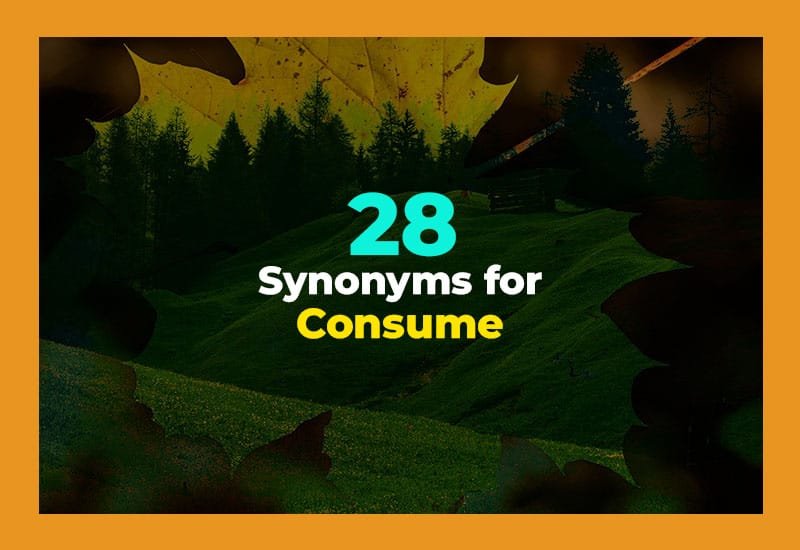
Final Thoughts
I hope this guide gives you plenty of options for replacing consume in your writing. Each synonym has its own shade of meaning, whether for eating, using resources, or being overwhelmed. Choosing the right word can make your sentences more vivid and expressive. Experimenting with these alternatives can also expand your vocabulary and strengthen your ability to convey precise emotions, actions, and experiences.

